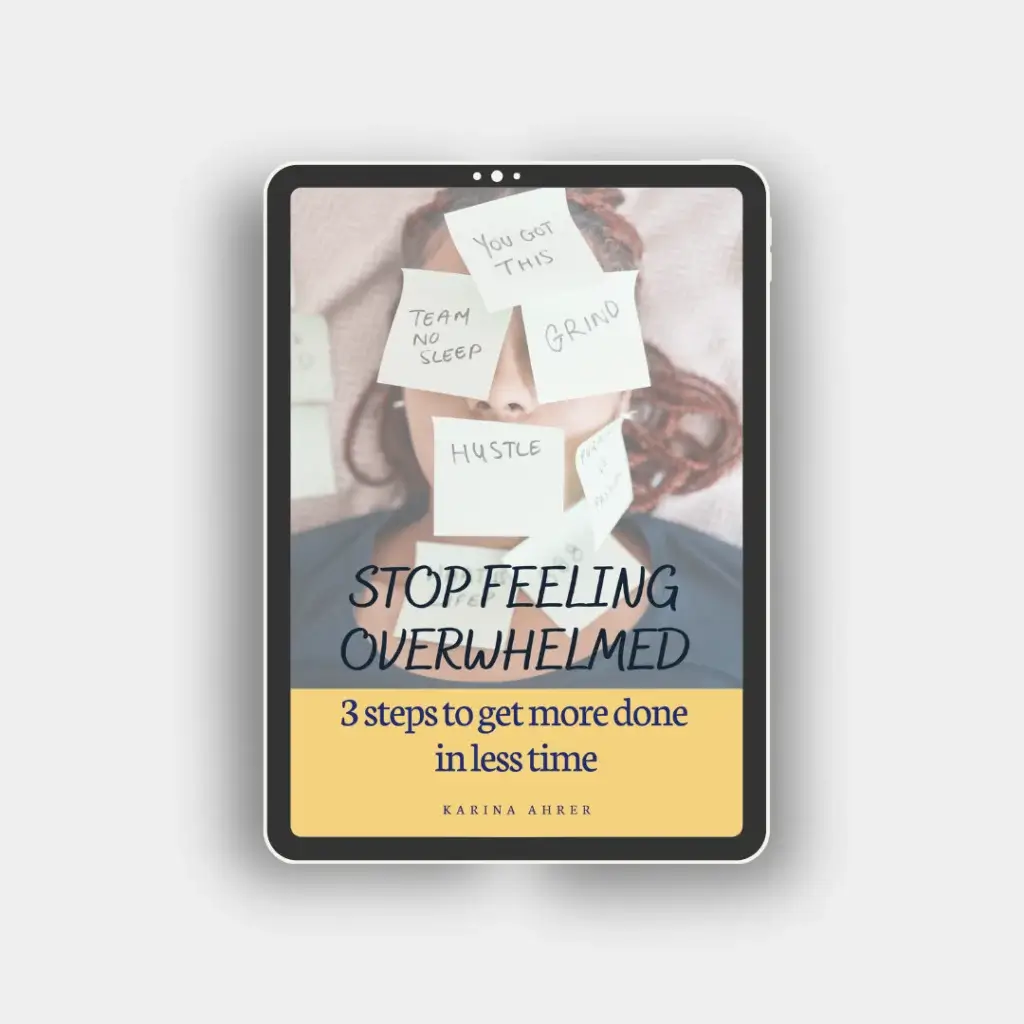On my first day of my college journey, I realized I had no idea what I was getting into
Choosing the profession you’ll probably work in for the rest of your life in high school is one of the worst ideas. We’re still kinda in puberty, haven’t experienced the world yet, and are influenced by teachers, friends, and family.
Studying is a big time and financial commitment. You’re investing in yourself and your good education, but it needs to be worth it.
My study history is a little longer compared to normal people because, after my 1st bachelor’s in media technology, I realized at my 1st job that it wasn’t what I wanted to do. So I started again.
Now, at 30, I graduated with a Master’s in architecture, and I’m happy with my choices and my work.
Even though it took me longer, it was the best decision of my life, and I wouldn’t want to miss any experience I had.
Going through my studies made me realize a lot of things I wish I had known before to have less stress, more enjoyment, and be prepared. I still see other people struggling with those things, because it’s not something we learn or get prepared for.
So, here are 7 things I wish I had known before to have less stress and enjoy it more:
1) It’s okay if you fail (and you will): it’s part of everyone’s college journey
Studying doesn’t mean you’re the best of the best, and you’ll manage somehow because you learned a lot in school.
You will fail. At a test, at a project, or in your private life.
You’re in your early 20s; you will try new things, and not everything will work out like you want it to.
In my 4th semester, I failed the semester project. We gave it our best and spent a lot of money (200€ on printing plans and building a model), but in the end, the professors also needed some projects to fail to balance the grading.
I was devastated. Our tutor never mentioned that we were on the edge of failing. I had other projects and exams, and I didn’t give 100%, but I would’ve if she would’ve told us.
Now looking back, failing and doing it again a year later was a good thing. The next project was way better; I worked with a great team, and it definitely looks good in my portfolio.
I know now to trust the universe, and if I fail, there’s a good reason.
2) Enjoy being young
Instead of focusing on having the best grades.
This point is a small point I regret in hindsight. I focused on studying fast, getting good grades, finding a job fast, and improving myself every minute of the day.
I enjoyed some parties in the first few semesters, but I focused on getting good grades after that.
I think I had many parties balancing my studying, but I would’ve loved to enjoy being young more by traveling and doing stupid things.
I don’t mean doing drugs or overdrinking, but doing karaoke, talking all night, exploring new cultures, skinnydipping…
You know what I mean?
Studying is not just about learning new things; it’s also about exploring yourself, experiencing the world, and enjoying freedom.
3) Study and grow because you are hungry for knowledge
I know a lot of people struggling to study, failing at exams, and procrastinating on everything.
You decided to study this topic. You decided to invest in your education and grow.
So why are you miserable now studying?
Either you grow because you are hungry for knowledge of your study field, or you choose something else you’re more interested in.
I know a lot of people who don’t like their studies (or are not passionate about it). They do it because:
- “I’m almost done”
- “My parents are working in this field”
- “In this profession, I make the most money”
- “I kinda liked the subject in school”
- “Someone said I’m good at it”
As someone who studied two times (because the first one wasn’t for me), I have experience with that, and I want to tell you:
It’s never too late to switch majors!
Even if you figure out it’s not for you after your studies, you can always change professions. Trust me, I’m a studied architect and programmer, and now I’m writing online and posting on IG next to my job.
You can be who you want to be, and change at any time.
4) Learn time management
I wish I had invested in learning about time management before my studies because I was overwhelmed with all the exams, tasks, and projects I had to do.
Every semester the workload increased, and after some time I learned how to manage my time, but I would’ve saved a lot of stress (and sickness) if I’d known some tools before.
That’s one reason I’m talking about time management online and having an online course: I saw students overwhelmed with the workload.
Studying is challenging, but it can be fun instead of burning out.
At the beginning of my studies, I had terrible habits to get it all done:
- working/studying without breaks
- eating unhealthy food
- sleeping less
- no self-care time
- trying to use every minute of the day
- being sick after submissions are over
This wasn’t healthy, and I don’t know how long I would’ve survived it. No wonder some students burn out.
After I realized I didn’t want to live like this anymore and remembered some time management tools from years ago, I started to improve my productivity skills and introduce healthy habits.
- a morning routine with me-time: meditating, affirmations, exercising…
- eating healthy food 3 times a day
- taking conscious breaks every 1-2 hours
- sleeping 7 to 8 hours daily
- taking a self-care break every weekend to relax
- less partying (less interruptions of my habits)
And it worked.
I had less stress and even increased my workload by working part-time next to my studies and volunteering. Which gets me to the next point:
5) Find a job as soon as possible
It sounds counterproductive to the other points, but the experience you get from working any job (it doesn’t have to be in your field) is more valuable than having the best grades.
It will help you in the long run when applying for jobs after your studies.
We think we learn everything we need to know for work-life later, but that’s not true. Usually, the practical work in real life is different from what we do in projects at university.
Of course, you need to know the basics, but you only get practical experience by working.
Working part-time next to studying doesn’t just bring you money but also experience, a network, and an advantage at applying for jobs after your studies.
Additionally, it helps you figure out if you like to do the job in the future, and it structures your days.
You have less time for university, so you have to learn how to manage your time, focus, and be productive.
6) Don’t forget your family and friends
Moving away to study made me forget my family a bit.
We’re so busy with studying, enjoying parties, and finding new friends that we forget our old ones.
Some relationships are temporary. My old friends would’ve kept me from improving and finding a new network because I would’ve gone home more often to see them.
But family stays for life, and we often take them for granted. Which I did for the first few semesters.
Don’t forget to call your parents and siblings.
Do regular Zoom calls. Write them randomly.
You spent 18 years living together. Don’t forget them!
7) Don’t forget to take care of yourself
This is part of managing your time: take care of yourself.
Doing all-nighters every week is neither productive nor healthy.
Take breaks, plan some me-time, and relax.
In the last few years, I’ve established a morning routine to focus on myself.
It’s quiet; my boyfriend is still sleeping, and I meditate, visualize, exercise, write, and think.
I’m just sitting quietly and having the time for myself.
It’s a precious habit I need to prepare for a day ahead in the office.
My morning routine is my way of taking care of myself, and it’s my #1 priority daily.
Additionally, I take conscious breaks on the weekends and read, walk, or watch TV.
As an introvert, taking care of myself and taking breaks is even more important to not be overwhelmed with this loud world.
To wrap it up
Studying can take all of your time and focus. And that’s okay for a short amount of time.
The core message of those tips is: you don’t need to have the best grades, and you can change at any time.
Studying is challenging, but it should be fun. Learning and experiencing new things is fun.
Find your hunger for knowledge, and you can’t stop reading and studying.
Additionally, knowing how to manage your time will reduce stress, give you more time with your loved ones, and help you enjoy your 20s.
Less Stress. More Time. Less Overwhelmed!
Get your free copy of my 3 steps!

Get daily insights, motivation, and inspiration:
If you are as addicted as I am to reading books, check out my favorite books!




